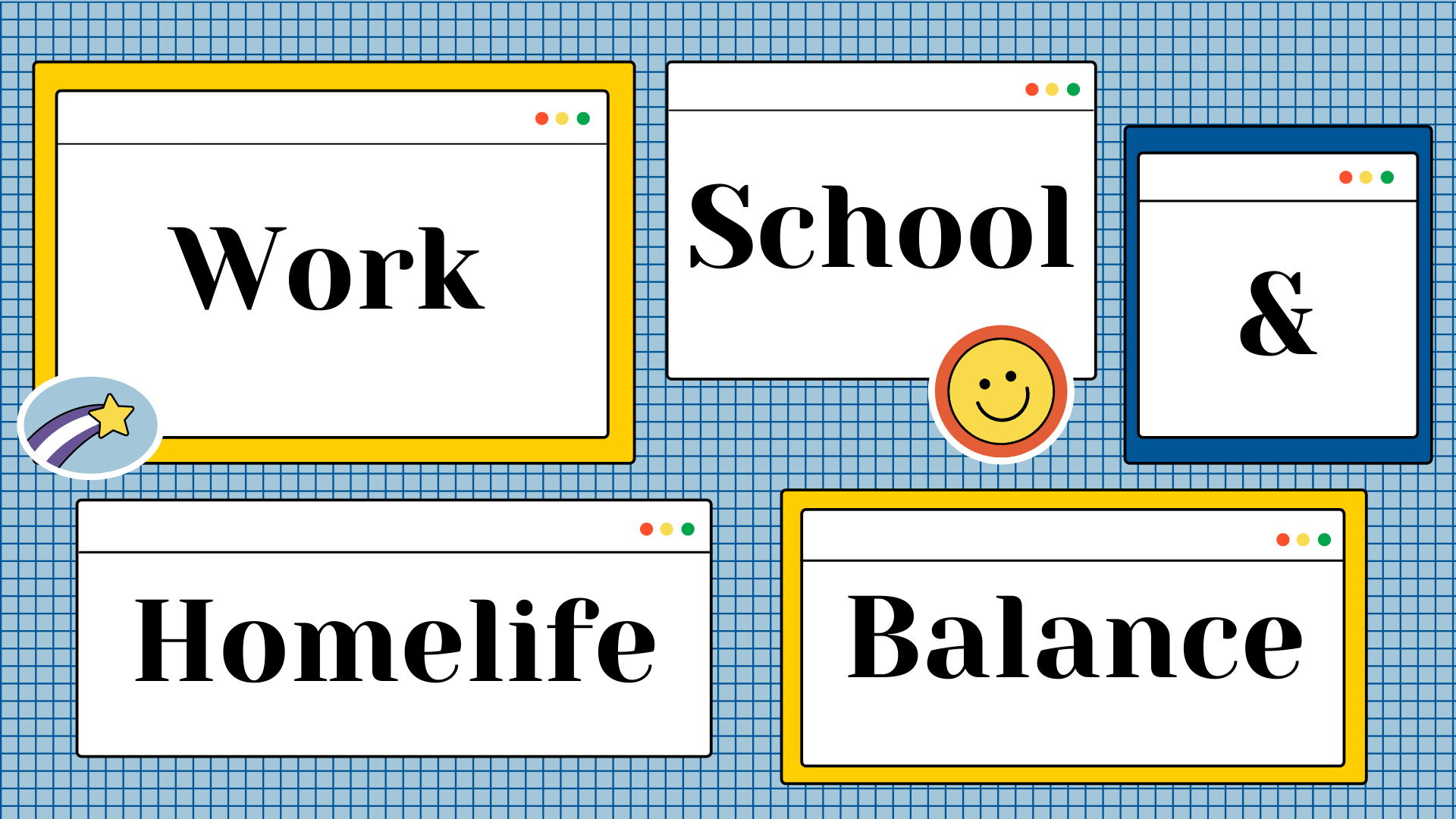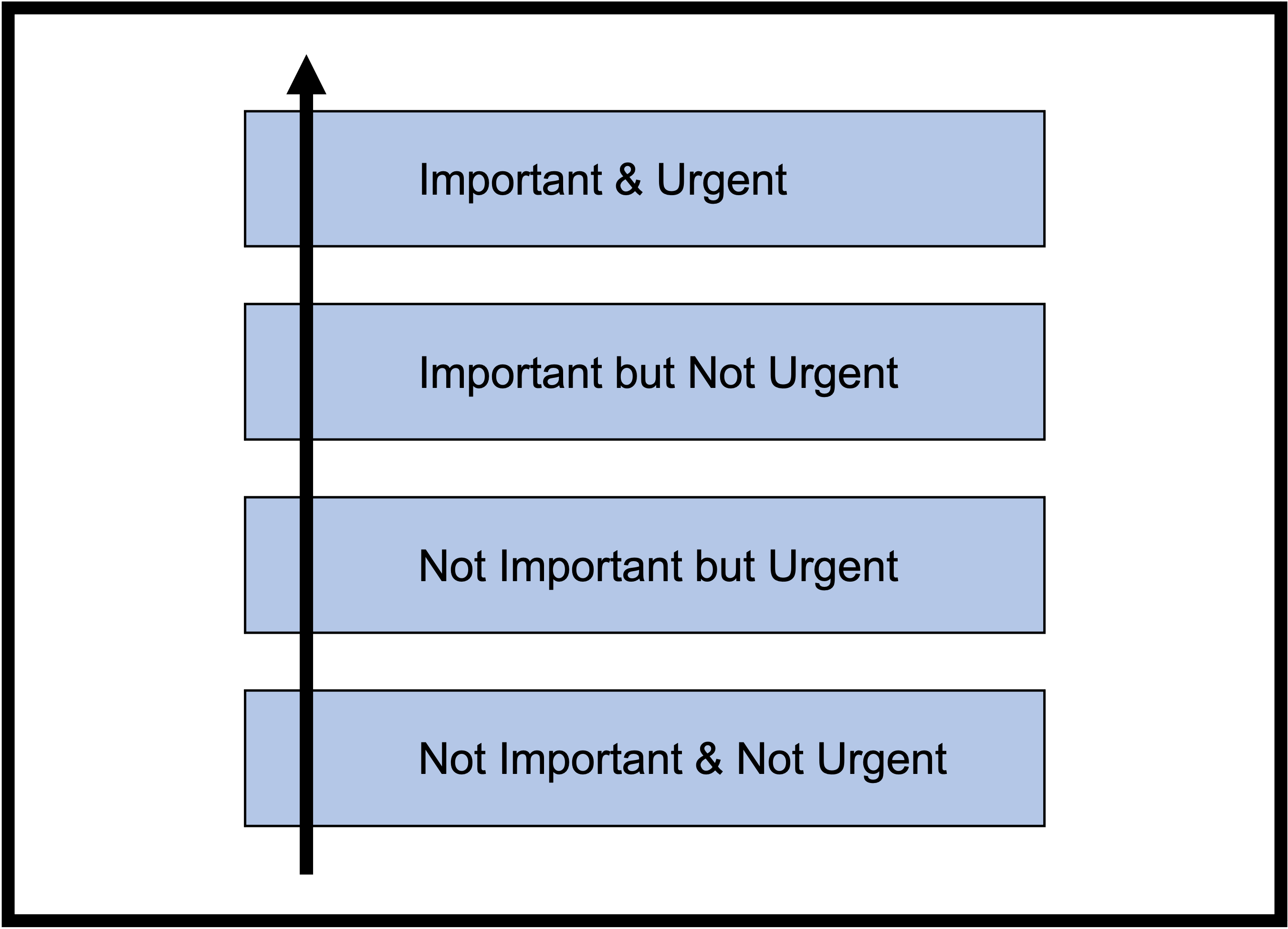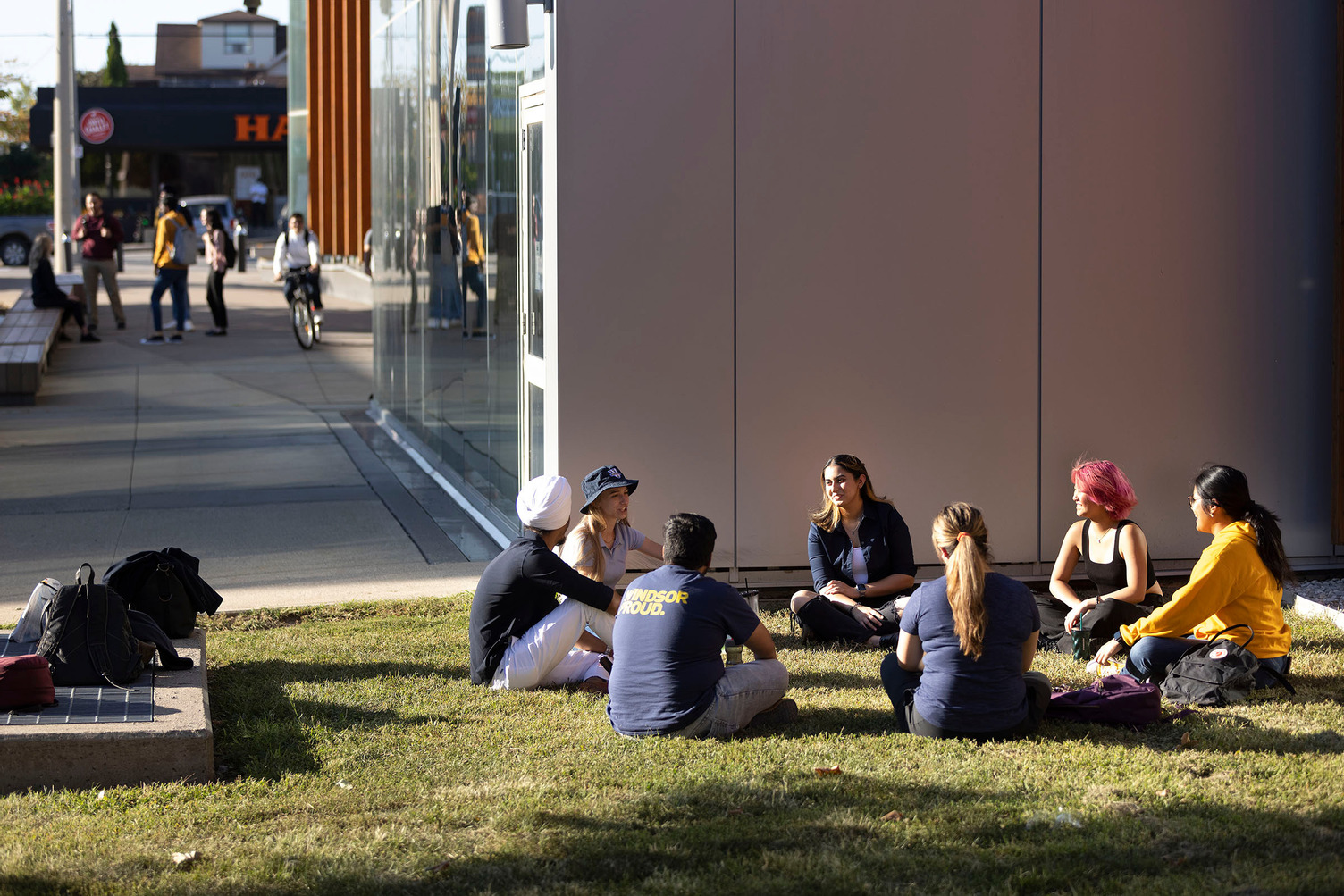15 Work, School, and Home-Life Balance
Learning Objectives
By completing this section, you can:
- Identify ways to establish a healthy work, school, and home-life balance.
- Discover the importance of balancing important aspects of your life.
- Apply Eisenhower’s Principle of Urgency and Importance to your to-do list.

“Balance is not something you find, it is something you create.”
quote by JANA KINGSFORD
It is easy to sway between not doing enough and doing too much. Many of us might be considered “go-getters” and are constantly taking on extra jobs and volunteer opportunities in addition to keeping up with school work and maintaining personal relationships. Finding balance in these areas is important for positive mental health. Having a good balance between school, work, and life may help in preventing feeling stressed and overwhelmed.
Tips for Achieving a Balance
Create a daily, weekly, and monthly to do list
- Write down everything that you have to do and write down when each item is due. This will help you stay organized and allow you to visualize what you need to do.
Keep a virtual or physical agenda or calendar
- Using an agenda or calendar helps you stay organized. If you are using a virtual agenda or calendar you can also set up reminders that will notify you in advance when you have tests, assignments due, or appointments.
Find ways to stay in touch with friends
- It can be difficult to find time to hang out with friends when school and work are busy. Consider setting up study dates with friends so you can still spend time with one another, while completing work.
Set aside time for fun
- Constantly studying and working without taking time for yourself can take a toll. As you schedule in other responsibilities, try to include time for fun. This can include playing sports, watching a movie, hanging out with friends, or going shopping. Make sure you are incorporating activities that bring you joy.
Sort your to do list by priority and urgency
- Use the Eisenhower Matrix (see image below) to sort the tasks on your list. The Eisenhower Matrix sorts tasks by urgency and importance, with the important and urgent tasks at the top of the list (Victorino, 2020).
- For example, a final exam you have tomorrow would be both important and urgent. A large assignment you have due in a month, would be important but not urgent. An example of something not important and not urgent would be watching T.V. If you have a busy schedule, use this matrix to help you decide what to focus on first. You can still do the not important and not urgent things if you want to, just try to complete other more urgent work first.
When possible, stick to your body’s natural clock
 You have no doubt heard terms like “early birds” and “night owls”. Which one are you? The fact of the matter is, that we live in a 9-5 world, but very few people are actually built to operate in such a way.
You have no doubt heard terms like “early birds” and “night owls”. Which one are you? The fact of the matter is, that we live in a 9-5 world, but very few people are actually built to operate in such a way.- If you function better at night, forcing yourself to wake up at 6am to study is not likely to be very helpful. While you might not be able to avoid classes at 8:30am, try looking for night class opportunities and find classmates who operate on a similar schedule so you can work and study together.
- Similarly, if you function best early in the morning, forcing yourself to stay up late is more likely to lead to exhaustion and you probably won’t retain much of that information anyways. Go to bed at a reasonable hour and wake up early to get a fresh start.
Eisenhower’s Principle of Urgency and Importance (Victorino, 2020).


Photo by Jesse Bombardier at University of Windsor, 2021
How to Better Organize Your Time
Created by Vanessa Reka at University of Windsor
Chapter Progress


